This interview was conducted on April 15, 2023. If you’d like to comment, feel free to add yourself as a paid subscriber, join our Facebook group, or respond on Twitter.
The transcript below was generated electronically. Some errors may remain. Please send any corrections to ShelbyvilleIdea - at - iCloud - dot - com.
Caleb O. Brown: Kathy Fehder, you are the Principal of Corpus Christi Classical Academy, which has, as of this school year, been relocated to Shelbyville, Kentucky. So tell me about Corpus Christi.
Kathy Fehder: Okay. Well, it started out actually as Our Lady Guadalupe 23 years ago. And we were blessed to move into this location here in Shelbyville, right in the center of town, this past June. And we found that there's a vibrant community there, and so the result has been a lot more people really seeing the school. It's becoming more visible in this location, and so more people have come into the school as a result.
COB: So the registrants, the young people, there are a lot more this year than there were last year?
KF: Yes. Well, the thing is, and particularly since we didn't move in until actually July 1st, the end of June, there were people who hadn't heard about us in our other location in Simpsonville, even though it was there all those years. It was originally Our Lady Guadalupe and they had a high school called Corpus Christi. But at some point, we thought it best to merge, and so the name for the entire school is Corpus Christi and it became classical in 2015. So I've been there since 2016, this is my seventh year.
“Our emphasis begins on human virtue, what it is to make a man, a person, virtuous. And then that moves into what we hoped will become young saints, people who understand there is a higher power.”
Kath Fehder
COB: So, tell me about the... because when I described Corpus Christi... Full disclosure, to listeners, my daughter attends Corpus Christi Classical Academy. When I describe the school to people, because my family, we're not Catholic, but when we interviewed at your school, it was immediately clear to us that this was a great... Gonna be a great option for our daughter. And so, when I describe it I say, "It is a Montessori Classical Academy Catholic school." What... Take those in turn if you want, but what do all those things mean?
KF: Okay, Catholic school means that definitely we teach the Catholic faith. Our emphasis begins on human virtue, what it is to make a man, a person, virtuous. And then that moves into what we hoped will become young saints, people who understand there is a higher power. For Catholics, Christ is the pillar of truth, and so we bring all of that into the classroom. The classical tradition comes out of the church as well, we call it Catholic, and then classical because the emphasis of Catholic schools... Excuse me, of classical schools is truth, beauty, and goodness. So, like I've told you, I'm not a reporter, I'm not a public speaker, but I can recognize beauty and truth and goodness, and that's what we really want to infuse into our students who come into the school. They recognize that there is so much of that in the world even though it doesn't always seem that way. What is not, can be more dramatic, but it is to me, an invitation to know God if you understand beauty and truth and goodness.
COB: So that's the Catholic portion of the...
KF: Catholic and classical.
COB: Oh, it is classical.
KF: Classical, truth, beauty and goodness. And so...
COB: Catholic and classical?
KF: Yes. And so we do have an emphasis on... When we talk about things like beauty, we look at the literature that we study. We do not read pop culture, with... I believe that kids get plenty of that at home and in their other environments. But we read classical books, books that kind of have elevated vocabulary and that can really lead kids to understand there's a much bigger understanding, philosophy of life, than what greets the eye. And so we do have this emphasis on our supernatural destiny, but we read books, totally appropriate, developmentally, like things like Robin Hood, King Arthur. And so we do have an emphasis on our Western heritage because it was out of that that our faith sprung. So all of this is Catholic and classical. And as they develop, we also introduce things that really touch upon that beauty element, like cursive. But I want people to understand that cursive isn't just about beauty, it actually has a physiological developmental advantage that unfortunately many have abandoned. But it crosses the midline, there's so much to be said about cursive alone.
COB: I have heard that cursive improves your memory of material that you are studying.
KF: Yes, it does. Cursive enhances focus, attention to details, of course you can take quicker notes, and fluency of thought. Like I said, it crosses the midline, left brain, right brain, it is so... It's a game changer for people to understand how important cursive is to kids, it strengthens their memory. And in that vein, I would say classical also means that we study the Latin language. And Latin is not a modern language, I'm fluent in Spanish, but Latin is a classical ancient... We call it an ancient language, which is more like math, because it organizes thought and builds those... It gives us that building block, the grammar, to understand our own language. 50% of the English language comes from Latin.
COB: So I had Latin in high school.
KF: Did you?
COB: And when we... When you and I spoke initially about whether or not... About setting up an interview and visiting your school, you said, "Yeah, we teach cursive and Latin." And I was like, okay, I'm sold. [laughter] I'm in...
KF: I love it.
COB: I'm in. And...
KF: Not everyone understands that.
COB: Yeah, and so... And I noticed at at a different point when I visited the school, that the Latin textbook that you use, is the Latin textbook that I used in high school.
KF: No way, seriously?
COB: Yes. Thank you Mrs. Richter of Calloway County High School for...
KF: I love it.
COB: … teaching Latin to us. And I really appreciate it, and you were talking about not being fluent in Latin, and I thought, well, it's kind of hard to find your local Latin community...
KF: It is.
COB: … your local group of Romans, to practice your Latin with. But it is... It goes to the core of how Western Romance Languages all developed and...
KF: Totally.
COB: It is a language that is structured in such a way that you can just give a random assortment of words, and they all already have their place in the sentence.
KF: Totally. This is one thing. We study ancient Greece and Rome, and the thing is, we say Greeks with their brains because they were philosophers, they just... They were all about that level of understanding the human person. And then we say the Greeks with their brains, but the Romans with their drains. Because the Romans were engineers, we say, "All roads lead to Rome." And it was from there that so much spread out to the rest of the world. And so that engineering, that organized way of thought really builds upon everything we do in our own language, and that is why I can say that every year, not only with the National Latin Exam, but with the Iowa Test of Basic Skills, the ITBS, which is the standardized test we give to the whole school, our scores are the very minimum one year above grade level. But for example, I've had... This year, I had seventh graders testing in the college level across the board, and that's common, eighth graders, etcetera.
COB: I wanted to make a note of that too, because... And I won't name the other schools, but we toured three schools when we were deciding where to send our daughter, and yours was the first. And I can remember you handed us a folder, and the first page of that... Inside that folder, the first piece of paper was a list of grade... Relative to grade level performance of students at your school. And the other two schools that we visited, we had to ask... One, we had to ask for that information because that's relevant information to parents who are trying to make a choice about a school, and neither one could provide it.
KF: Yeah, it's very interesting. A lot of schools, I'm sorry to say, are getting away from... Well, there's not always a clear curriculum, that's one thing I do like about what we're doing, among many things. And that is, we have a fluid curriculum year after year. And I've been in other schools, I have five kids myself, they're all in their 20s now, well, one just turned 30. But essentially, you can ask for a curriculum, but from one grade to the next, oftentimes it's left up to the teacher to determine, and there isn't a fluid curriculum. For us, we try to also make it thematic. So all the classes are touching upon similar subject areas as much as possible. Specifically, we connect literature with history too, because that just builds up more knowledge of it, and I am not one to say, I'm gonna pull punches on kids. I like kids to understand expectations, so they know that this is the pattern and the standard for how we're going to present this. And it helps them to get orderly in their own understanding of such things as not just studying, but taking notes and things like that.
KF: But... So one year might be a study of Greece, next year might be the study of Rome, the next year might be the middle ages, which are largely ignored in many places, but they have so much to offer. And then "the modern world" discovering, whatever. So, this also helps kids to remember, and all that we do is to strengthen the memory. I'll say one more thing about classical schools, recitation is a program that personally I can't say enough about. It not only builds confidence in the children, the students, because they can remember long beautiful poems and things like that, but it also strengthens their memory. What I found is many people today, unfortunately many kids, they're putting their memories into their devices, and so it's very difficult to come into our school in the upper grades because our... The performance of our kids and what they've become accustomed to is normally beyond the typical grade level. And so to come into that is very, very challenging, unless you've kind of been brought up in that system. Does that makes sense?
COB: So we should make note of the fact that you are located on the property of the Catholic church, the Church of the Annunciation in Shelbyville. Which is...
KF: Yes.
“What I found is many people today, unfortunately many kids, they're putting their memories into their devices, and so it's very difficult to come into our school in the upper grades because our... The performance of our kids and what they've become accustomed to is normally beyond the typical grade level.”
Kathy Fehder
COB: Between two chunks of a state highway, which are essentially Washington and Main Streets. You're right in between those two. And it's been very interesting, especially sort of from the outside looking in, because I assume most of your families are Catholic. We are not, but your school was just the one that best met our hopes and expectations for our daughter, and we enjoy having her there and she has made a lot of friends and seems to be thriving, as best I can tell. So, I guess, you came from Simpsonville?
KF: Yeah.
COB: The school, just last school year, was in Simpsonville?
KF: Yes.
COB: Why the change?
KF: Well, what we found is, the majority of our families are from Shelby County.
COB: Okay.
KF: And a lot of them live in Shelbyville. But we had a lease in Simpsonville, and it was time to move on. I know Simpsonville had plans for the building. And so we were invited to come in here, and which is actually, for most of our families, is more convenient. We want to live and grow in Shelbyville, Shelby County. So, where we are was a great move because, again, most of our student population lives in this area, although we do get students still from Oldham County, we've had them from Henry County, Spencer County, of course we're the only Catholic school in that Tri-County area. But also, we've even had some come this way from Frankfort. So, it was a good move and a good fit for us to be here. Like I said, the more... Since we came here at the end of June, we became more visible to Shelby County where most of our kids are from. And if you talk about the population of the school, about a third of the school is Hispanic, and we do offer... And oftentimes... Here's the thing, we wanna give our families in Shelby County, we wanna give families options. And being the only Catholic and only one, to my knowledge, there may be another, but maybe only one other private school, we think it's not just an option, but it's a beautiful option because it is academically strong, very strong, and it's also a place where kids can feel safe, it's a strong community feel.
KF: We want kids, and I want kids, to love learning, and that's why the plan is you start in Montessori where it's somewhat child-directed, I guess you could say. And the kids are happy and they're moving and gravitating towards things that they wanna know about, and we continue to foster that. And all the way through classical education, from... Essentially from first on up, we want them to love learning and to be happy. It's a sad thing to me for a child to come home crying 'cause they weren't happy in school. Now, there's things that happen, but we want them to know that they are loved by God, and that they are loved by this community, and loved by their teachers, and we want it to be a joyful experience because learning is life-long. And we want these kids to be independent thinkers, to understand... I don't mean independent in the sense of separate, but I mean being able to recognize situations that are healthy or not, that kind of thing.
COB: You're the principal of the school. Now...
KF: Yeah, so I'm the principal/head of school.
COB: And that... But that term principal used to mean something different than it does today. And...
KF: Tell me what it means to you or what it meant.
COB: What it means to me today is, you're almost solely an administrator, but that's not you, that's not what you do. You're a teacher and an administrator of the school.
KF: Yes.
COB: And so you are making decisions about curriculum. And in sort of modern public schools, that's not really what a principal does.
KF: Right, no. In a perfect world, with... Well, a number of other things. I'm not even gonna say a perfect world. I think as a principal, no matter where we are, how big we are, or anything else, I still would teach a class because I do think it's important to be in the mix and to know what's going on, and to assess certain things in the curriculum, especially on the higher level. But I'm very familiar with this curriculum even before I came here. My kids went to classical schools, so I'm fully aware of it and loved every bit of it.
COB: What do you teach?
KF: I'm teaching Latin. Surprise, surprise. I'm also teaching literature right now. We just read... The seventh and eighth graders read The Iliad by Homer, epic poems, and the highschoolers read the Aeneid by Virgil which is phenomenal. And next up would be Dante, for example, the Inferno and whatever. So essentially, I am... And I'm also teaching highschool theology. I do also have a background and master's in biblical studies. So basically, I teach where I need to be teaching, but some areas are areas too that... Well, let's take Latin, it's very difficult to find Latin teachers today. But I've taught it for many years, and it's so foundational and pivotal, it's a game-changer like cursive is, if you can believe it, for kids to strengthen their memories and to have a greater fluency of thought, to acquire vocabulary that gives them very high reading levels and therefore very high writing levels.
COB: Yeah, the one thing I can say for Latin is that I, to this day, I'm able to look at an unfamiliar word and begin to piece together what it means.
KF: I can say there are people who say Latin is a dead language. Well, I can tell you, I taught language in college level for many, many years. Spanish, and also taught English. And I can say we speak Latin every single day, 50% of our language, right? And so, this for example, I had one senior, because we have a high school, but it's not a big advertising campaign, but if someone wants to continue in the classical methods, I am happy to embrace that. And so I just had a student graduate from high school. She's the first high school graduate in her family, and will be the first college graduate. And this girl got $180,000 worth of scholarship offers from several different colleges. She ended up entering the Honors College of Nursing at Bellarmine.
KF: And that Latin has been foundational, like in many of the medical fields, in helping her achieve this high level of understanding. And again, it's not just Latin, but learning things like 20-stanza poems. And there's biblical studies, memorizing psalms, long psalms in scriptures. And again, cursive, all of this fully integrates this information more strongly and more deeply into the human brain. Okay. So it's a combination of all of these things. Literature, of course, teaches a lot of things about humanity, right and wrong and things like that.
COB: What are some of the other great books that young people read? I don't expect most even adults today to have read The Iliad, The Odyssey, The Aeneid. So what are some of the other great books?
KF: Yeah. In some of these schools, they'll read like a piece of The Odyssey, but we do read the entire book because we want the kids to go deeply into the understanding, not just of that era, but of what's to be learned and gleaned from that. So in the younger grades, we start with, we do fables, we do stories of the likes of Paul Bunyan and all those guys. And then we go into the Little House on the Prairie. Well, it's Little House in the Big Woods, and then Farmer Boy. These things really do show the beauty and the power of the natural world. They show kids the beauty of God's creative world, but also we make choices in this world, but there are consequences that we can't always control. And so there's a lot to be said about that.
COB: The Little House books. We have a full set here. My cousin, Misty, was very proud to have read those books with... To and with her children. The books become … the language, becomes more complex as you go through the books.
KF: Yes, the building of vocabulary, for sure.
COB: Laura Ingalls Wilder, of course, is detailing a difficult life for pre-industrial America, and the reality, very stark hard-nosed realities of being a farmer, of having the associations that you make with people who are also trying to maximize their wellbeing of themselves and their families. The example that I go to is like using a reflector oven, which is, for most people don't even know what that is, and I wouldn't have known if I hadn't read those books. But a reflector oven essentially uses the sun to bake and generate low levels of heat to cook breads or any number of other things. And it's a complicated, difficult process. If you wanted to bake a pie 150, 200 years ago, that was a pretty complicated and difficult thing, and that was every part of your life. [Editor’s Note: Upon further research, we are reminded that reflector ovens typically make use of an adjacent fire, not the sun. We regret the error.]
KF: Right. Even taking maple syrup out of a tree and taking care of the cows in the middle of the night because there's a blizzard. There is so much to be learned in the natural world, so to speak, God's created world. And at the same time, as they move up, yes, the vocabulary becomes more sophisticated. When they get into fifth grade, they start reading King Arthur, and Robin Hood, The Door in the Wall, these are classics from the Middle Ages, which in a big sense, its kind of the height of the Christian era. And then moving into the founding fathers and coming into this country, they certainly study all about the American, like I said before, the Constitution, the Bill of Rights, the Declaration and that kind of thing.
COB: Yeah. And one thing I wanna make note of for the benefit of listeners is that especially, we're going back to Little House books again. Rose Wilder Lane was the daughter of Laura Ingalls Wilder. And she herself was a very well-regarded writer and I would say sort of political philosopher in the sense that she wrote a wonderful, wonderful book that I'll recommend to everybody called The Discovery of Freedom. And I view that as sort of a natural culmination of the Little House books, which she helped co-write some of the later books with her mother. And Rose Wilder Lane is a brilliant intellectual, and I gotta say a really, really good writer. So I will recommend that to your students as well as a potential extra credit assignment. [laughter]
KF: Right. All about that.
COB: What does the future look like for Corpus Christi?
KF: I believe as we kind of expand our space, we will very much expand our student body. I do think there has been... Well, right now for this upcoming year, we are on a waiting list for fifth grade and up already. Pre-school's on a waiting list. So because I'm separating a couple of the grades, we had some grades together, we do have some room in those younger grades, and that's the best time to come into a school like this, because you kind of learn what to expect and in the same kind of movement up, they also get the full body of academics that builds one year upon the next.
COB: So one of the plans that I have discussed with you and with others is getting a piece of property.
KF: Yeah, we'd like to have a piece of property for sure in this area.
COB: And building a school that is separate and independent from the local church, because I'm sure that that adds a little bit of stress to the church itself, but also gives you sort of a limited range of being able to make bigger swings, bigger decisions on behalf of the school.
KF: Right. As far as space, primarily. And yes, so we have had some starter money that was donated to get us going on this, but at the same time, we're blessed to be where we are. We really are. But just to serve more people, ultimately, we would like to have more space, so a bigger... A property on its own in that way.
COB: I talked to you a while back. The the Kentucky Supreme Court last year heard a school choice case which disappointingly, they did not advance. They decided to throw out the school choice program. I fully expect that to be a reality in Kentucky within the next two to three years. And my expectation is that schools like yours that are delivering this kind of classical education could be well-positioned to welcome a lot more students into that kind of education.
KF: Definitely. We have... To me, the kids are the most precious resource we have, our children. And to really kind of not know what they're learning or to not be invited in... That's one thing about our school that I think is very important, we require a parent, because we understand, we work in partnership with parents. I would never tell a parent that you don't know your child. Of course, parents are the primary educators. We as Catholic Christians believe that parents are the primary educators, of course, in so many ways. And so we work in partnership, and that means they come into school and they're required to give us eight hours of volunteering per child.
COB: Oh, I know.
KF: Per semester.
COB: Oh, I know.
[laughter]
KF: But you know what, it's a one... As a parent, I love that. Whereas, some schools don't allow parents in the building, period. And I say, we are happy, your children are happy. We want them to be filled with joy, to love learning, and to be thinkers who can stop and reflect, but also to give back to their communities. So what we teach is not just strong academics but an understanding of our history and the beauty of the world around them. Like nature studies. Of course, we go into biology and everything else on the high school level, but foundationally, the understanding of the world around us is often missing in a different sense. So we also have strong readers and we give them... We equip them with the language to be able to express themselves. So, like I said the trivium, the traditional classical trivium is grammar, which is the vocabulary, but it's the tools to speak and to express.
COB: The Lexicon.
“We want them to be filled with joy, to love learning, and to be thinkers who can stop and reflect, but also to give back to their communities. So what we teach is not just strong academics but an understanding of our history and the beauty of the world around them.”
Kathy Fehder
KF: And then logic. Logic is organization of thought and then rhetoric, in its true sense is persuasive writing. Writing and the understanding that moves people. So all of this is a part of what we do, and it's unique, and it's beautiful. And the outcome also makes for joy-filled kids who are part of a community, like we're not little independent, little Adams floating out there. But we are part of a community that is meant to kind of renew and enrich those around us.
COB: All right. Kathy, thank you so much. I appreciate you coming by.
KF: Thank you for your time.
COB: And recording with me down the hall from my office. I think that's my youngest child howling in the background there for a moment. But thank you so much. I appreciate your time.
KF: Thank you.
COB: And for those interested, the website is...
KF: Www.corpuschristiclassical.org. Corpus, C-O-R-P-U-S, Christi, C-H-R-I-S-T-I classical.org.
0:31:01.0 COB: Thank you.
0:31:02.7 KF: Thank you.
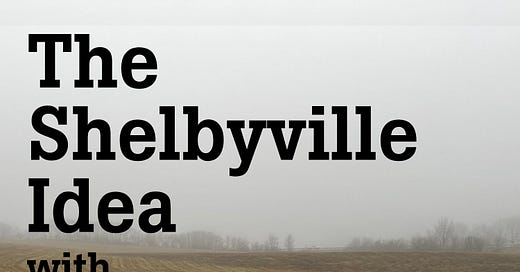

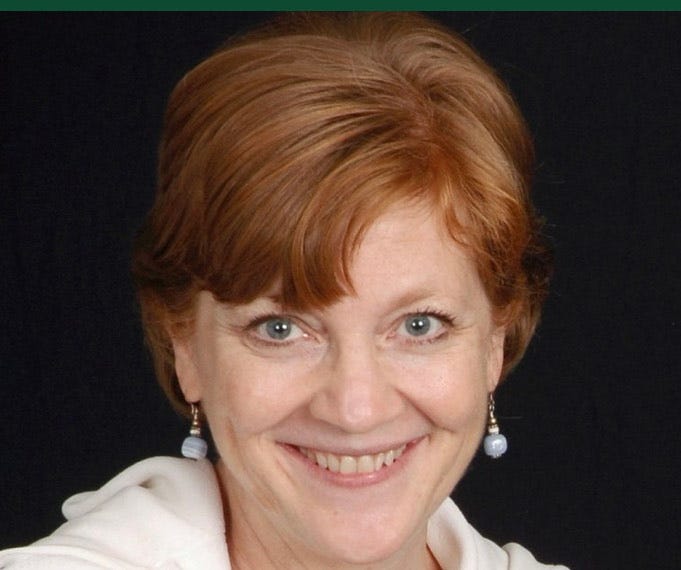
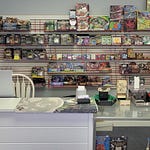
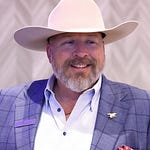
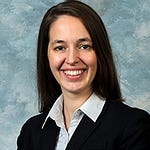
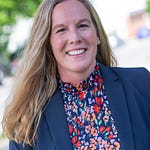

Share this post